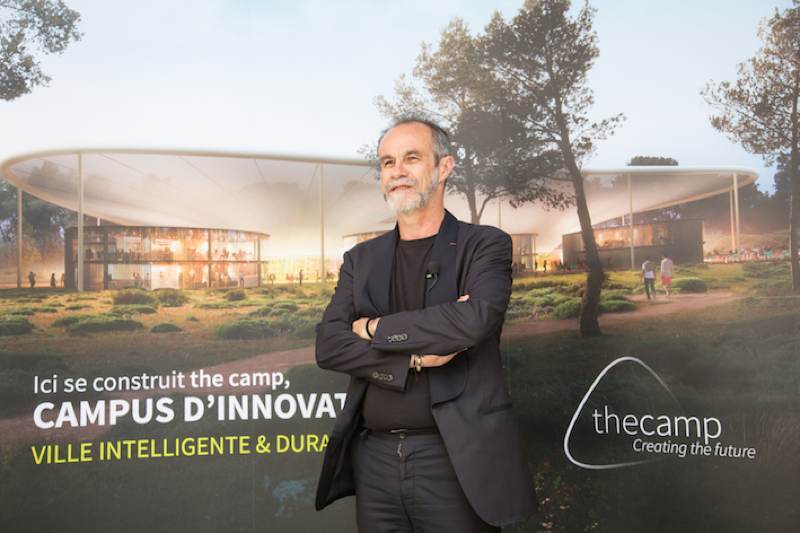Carlos Moreno, "The Smart City is a human smart city"
Mondial du Bâtiment

Pr Carlos Moreno, invited to all sorts of conferences, is THE international specialist on smart cities. From the COP21 to les Ateliers de la Résilience [Resilience Workshops a French event] or the TEDx Panthéon-Sorbonne conference in Paris, Here are some samples of his best interventions to discover the definition of future cities.
The observation
In 100 years, the human species went from 3 billion to more than 7 billion. Human activity and urban concentration got us to exceed 400 PPM (particule per million) of C02, which endangers our survival within 50 years. Cities like Lagos in Africa will reach 20 million inhabitants, although they counted on ly 4 to 5 million people five years ago. Today, 10% of the urban population lives in 35 cities. We need to go back to a smart, human and urban vision of cities. From North to South, from East to West, some metropolises produce GDPs greater than countries: it's up to the cities to provide solutions.
Carlos Moreno : his definition of smart cities
The great question dividing people is: a city is not an algorithm, it's fore and foremost a social, economic and geographic identity. In order to improve the quality of life of citizens in the city, we need to favor 3 major converging aspects: first, social inclusion for a better living together, then we need to reinvent urban infrastructures since they need to adapt to a new lifestyle and 21st century evolutions based on the digital revolution affecting our lives and improving it by "linking people within a territory". Technology is essential, but it's only a mean to a goal. The true challenge is the better living together, to create added value, to be aware of environmental issues, to focus on quality of life and our place as humans.
To favor the living together and participatory democracy
How can inhabitants make a sharing place like cities more lively and pleasant? It's not easy, because it's a living space that evolves quickly and cities are difficult to modelize. The answer comes from the governing people who need to push on relations between inhabitants to build a common future, to tend toward quality of life. In order to achieve that, they need to implement best practices for smart citizenship, with partipatory governances aiming to offer better services, such as social inclusion or econmic promotion of territories to create added value through technology. Crativity is the mother of innovation: when you create, you can have that outside-of-the-box vision to project yourself into the future.
Taking on a major environmental challenge
However, in cities, everything can radically change at any moment with unpredictable situations: storms, plagues, social and economic vulnerability, incoming refugees, tropicalization of diseases... For Carlos Moreno, we inherited urban plans from another era, from the 1950ies when we built cities in an oil version dedicated to cars, with large streets crossing cities. Today, we need to take on this environmental challenge and be aware that we draw on resources, that there are energy constraints, that 80% of the cities on Earth are plagued with unbreathable air, that cities don't have any more water or trees...
There is not one city but cities plural
The urban question isa transversal issue: cities are complex and must provide all services: housing, education, culture, infrastructures, roads, energy…
There is no unique model for smaert cities.Nantes, Nice or Lyon, each metroplis has its specificities: Paris and San Francisco have sometimes more in common than Paris and Bordeaux. Territories are different depending on social, economic, cultural, geographic contexts... "Cities have many challenges to face. the social challenge by living better together. The economic challenge: to get a job, the cultural challenge: having citizens to define their identity in regard of their city». We need to build living metropolises: develop the riverbanks of the river Loire, or the banks of the river Seine so that everyone can appropriate these pieces of the city. The identity issue is not about saying: "I'm Parisian" but "I love Paris and I am open to the world and my city builds itself with other cities".
Cities need learn from humans: leave space to sensations, it's a living organism constituted of elder people, children, or mixity.... When people meet, greet each other... here is the social fabric from which the cities of tomorrow will be built.
Article published in French on Mondial du bâtiment
Consult the source





